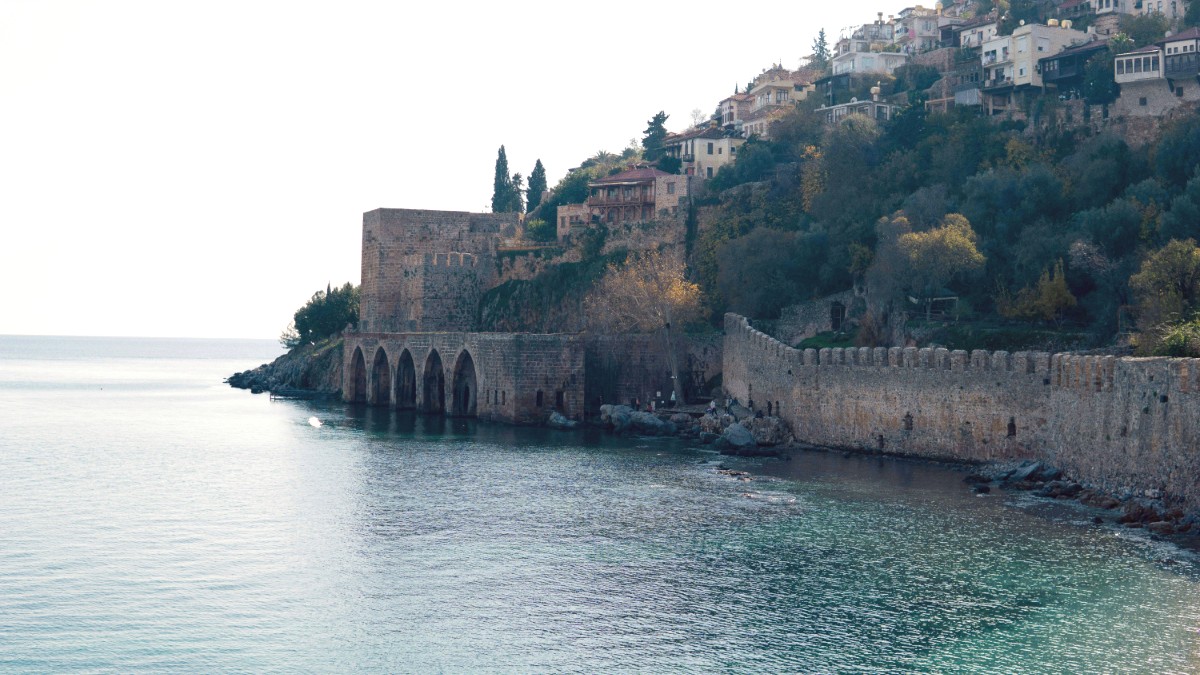
Mediterranean Coast, Turkey
Alanya finds a Mediterranean climate, with long, hot, and dry summers, and short, mild, rainy winters. This climate influences the ideal times for different activities and the overall travel experience.
Weather patterns fluctuate throughout the year, impacting daily temperatures, precipitation, and humidity.
Alanya's distinct seasons define the visitor experience. Choosing your travel dates based on climate patterns and crowd levels is a good idea.
Temperatures can soar significantly higher than average during summer heatwaves. Staying hydrated and seeking shade during the hottest parts of the day is good. Heavy rainfall is possible in winter, potentially causing localized flooding.
June - August
Hottest weather, ideal for swimming and beach activities. All tourist attractions and businesses operate fully.
Very crowded. Peak accommodation and flight prices. Intense heat uncomfortable for sightseeing.
April-May, Sep-Oct
Pleasant temperatures for swimming and comfortable for sightseeing. Fewer crowds. Moderate prices for flights and accommodation.
Sea might still feel cool in April/late October. Some seasonal businesses may not open fully.
November - March
Fewest tourists. Lowest prices for accommodation and flights. Mild weather for cultural exploration.
Cooler temperatures make beach activities less appealing. Higher chance of rain. Many tourist businesses may close.
June to September finds the warmest sea temperatures and abundant sunshine, ideal for beach and swimming. April-May and September-October yield comfortable temperatures for sightseeing and exploring Alanya Castle, the Red Tower, and ancient sites.
April-May and September-October stand ideal for exploring the Taurus Mountains and canyons, with pleasant temperatures and fewer biting insects. November to March gives the most affordable prices and a chance to experience Alanya with fewer tourists.
June to September
April-May, September-October
April-May, September-October
November to March
Shoulder Seasons
Policies vary based on your nationality. Always verify current requirements before your travel dates through official government sources.
Many nationalities find eligibility for an electronic visa. Travelers may apply for this online through the official Turkish e-Visa website (www.evisa.gov.tr).
Immigration officials may request these items to confirm your departure and stay in Turkey. Have digital copies ready.
Budgeting for your Alanya trip depends heavily on your travel style. Turkey, and Alanya notably, caters to various budgets, from frugal backpackers to luxury seekers. The official currency of Turkey is the Turkish Lira (₺, TRY).
| Travel Style | Accommodation (per night) | Total Daily Cost (approx.) |
|---|---|---|
| Budget Traveler | ₺300 - ₺800 (Hostel, Guesthouse, basic hotel) | ₺600 - ₺1450 (~$20-$50 USD) |
| Mid-range Traveler | ₺800 - ₺2000 (3-4 star hotel, comfortable apartment) | ₺1450 - ₺3400 (~$50-$120 USD) |
| Luxury Traveler | ₺2000+ (5-star hotel, resort, premium villa) | ₺3400+ (~$120+ USD) |
Turkey is a generally safe country for tourists, but readiness for common issues and emergencies is always a good practice.
For most international travelers.
Ideally 4-6 weeks before your trip.
MMR, Diphtheria-Tetanus-Pertussis, Polio.
Your health professional may assess your risk.
Advice for vaccinations like Hepatitis A, Hepatitis B, and Typhoid depends on your travel plans and activities. Rabies vaccination may be for those with extensive outdoor exposure or work with animals.
Personalized advice for specific health needs.
Preventative measures are a good idea.
Prevention strategies are simple yet effective.
Alanya is a safe destination. Awareness of common issues helps. Take standard precautions for your belongings and personal safety.
Alanya has modern medical facilities and easily accessible pharmacies. Emergency services are unified for quick response.
Several modern hospitals, public (Alanya Alaaddin Keykubat University) and private (Başkent University Alanya Hospital).
Easily identifiable ('Eczane'), widely available. Pharmacists often speak some English for advice.
Dial 112 for all emergencies (ambulance, fire, police). Operators typically speak English.